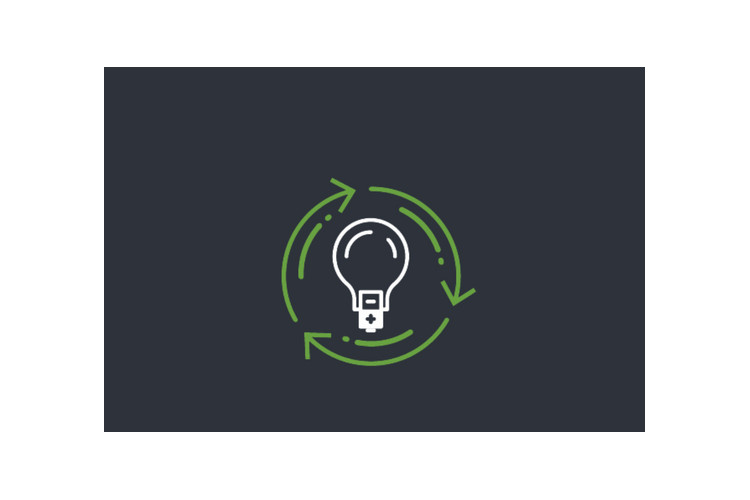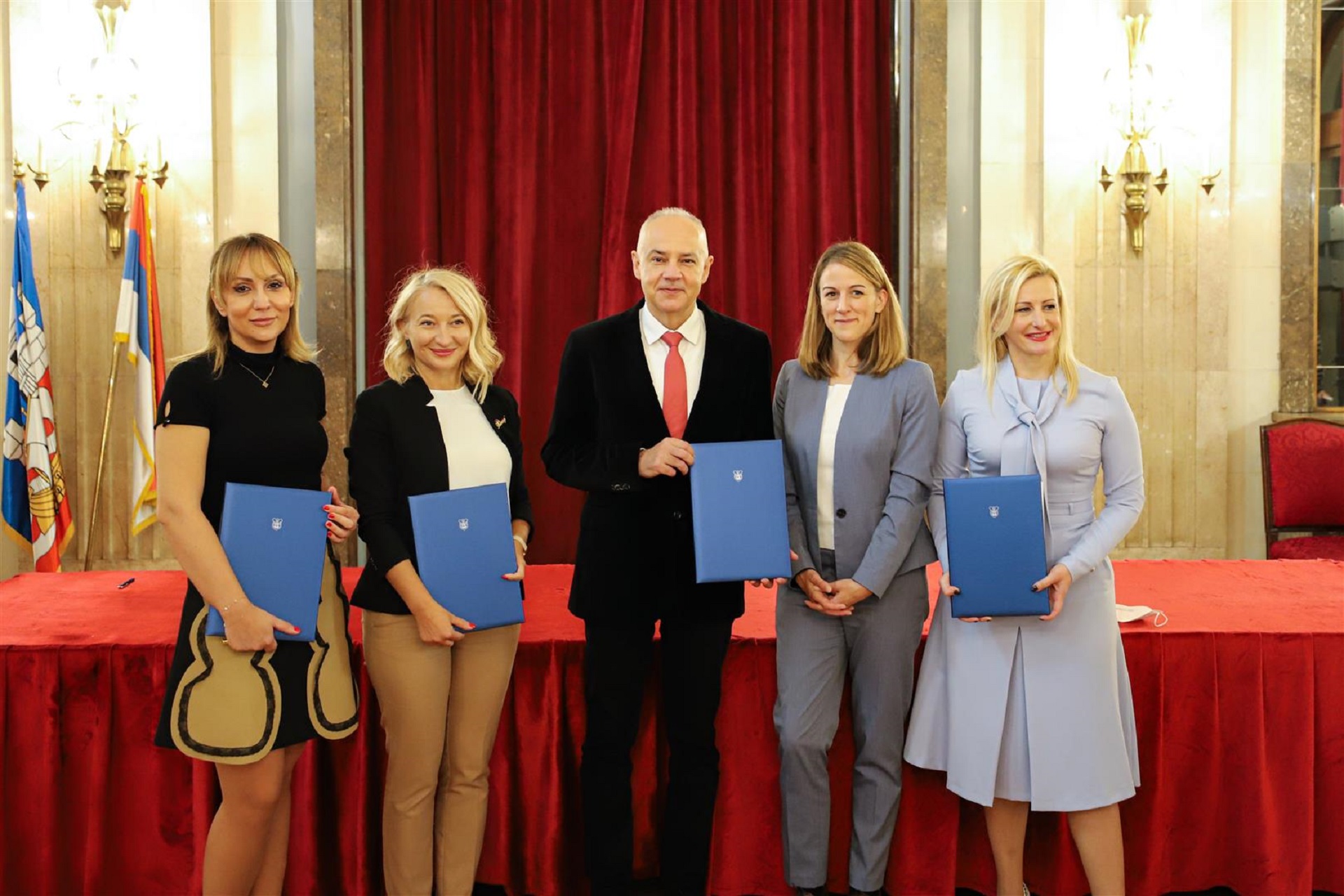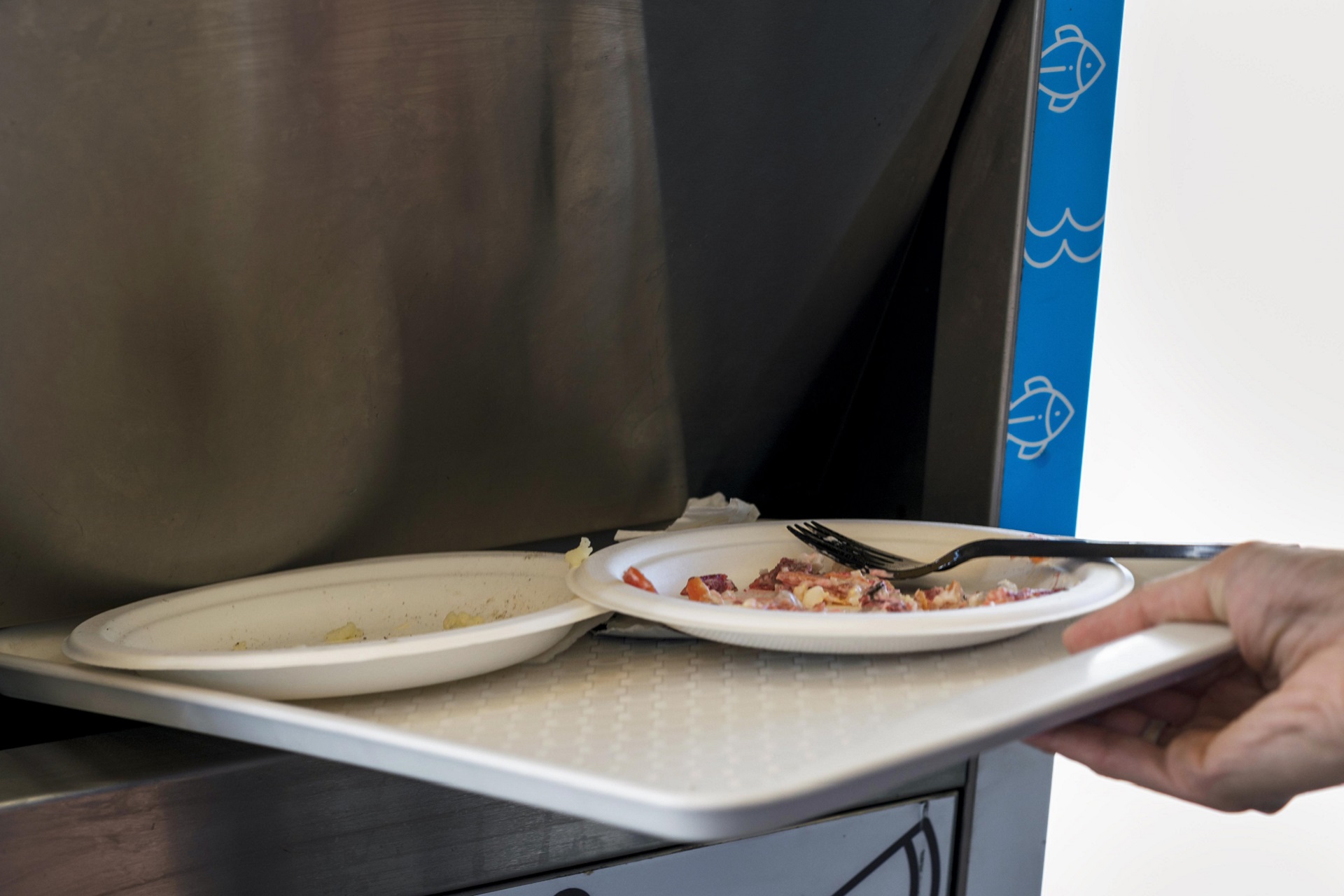Recycling of batteries and light bulbs initiated in Kragujevac
Used batteries and light bulbs in Kragujevac no longer have to end up in municipal waste, because the containers for collecting this hazardous waste will be available at as many as seven city locations starting from today, it was announced at the conference in the City Assembly on the occasion of the project „Increasing recycling rate for batteries and light bulbs”.
The initiative was launched by NALED and partners from the recycling industry in cooperation with the City Administration of Kragujevac, with the financial support of the German organization for international cooperation GIZ, in order to prevent further spread of hazardous materials in landfills and soil and water pollution.
Speaking about the project significance for the city of Kragujevac, Stefan Nikezić, a member of the City Council for environment improvement and protection in the City of Kragujevac, emphasized that preserving the environment is among the city's top priorities.
"Kragujevac was among the first municipalities in Serbia to receive 150 containers for glass packaging disposal within the project 'Management of glass packaging'. We are now embarking on a new initiative to reduce the amount of hazardous waste and provide citizens with an efficient and easy method for recycling used batteries and light bulbs. I call on all citizens to recycle responsibly, "Nikezic said.
He added that citizens can find recycling boxes in the City Administration building, at the Stanovo administrative place, in PUC "Water and Sewage" and in the payment offices of JSP "Kragujevac" in the settlements of Pivara, Aerodrom, Erdoglija and Dom samopravljaca.
"One of the main project goals is to increase the amount of collected batteries and light bulbs by 20% and, based on collected information, enable planning for further developing the collection network for these waste streams, while providing incentives for exporting batteries for further treatment and recycling. "Battery recycling plants are unprofitable for small markets, so we must continue to work on exporting this waste, but given its price, without some state aid, it is likely that it will still end up mostly in nearby landfills," said Sanja Knezevic Mitrovic, Policy Coordinator in NALED.
Sanela Veljkovski Mandić, Project Manager in GIZ, pointed out that this project is being implemented within the development cooperation program with the private sector, which is financed by the German Federal Ministry for Economic Cooperation and Development.
"Such projects make a significant contribution to Serbia's efforts to align its development policies with the requirements for EU accession, especially after the opening of the last cluster, which includes the key Chapter 27," said Sanela Veljkovski.
According to the data of the Environmental Protection Agency, between 70 and 100 tons of light bulbs are recycled annually in Serbia, which is less than 10% of the total amount of imported light bulbs. When it comes to batteries, it is estimated that every citizen uses a kilogram of batteries a year, while last year only a little more than 17 tons of waste batteries were exported to Germany for recycling.



